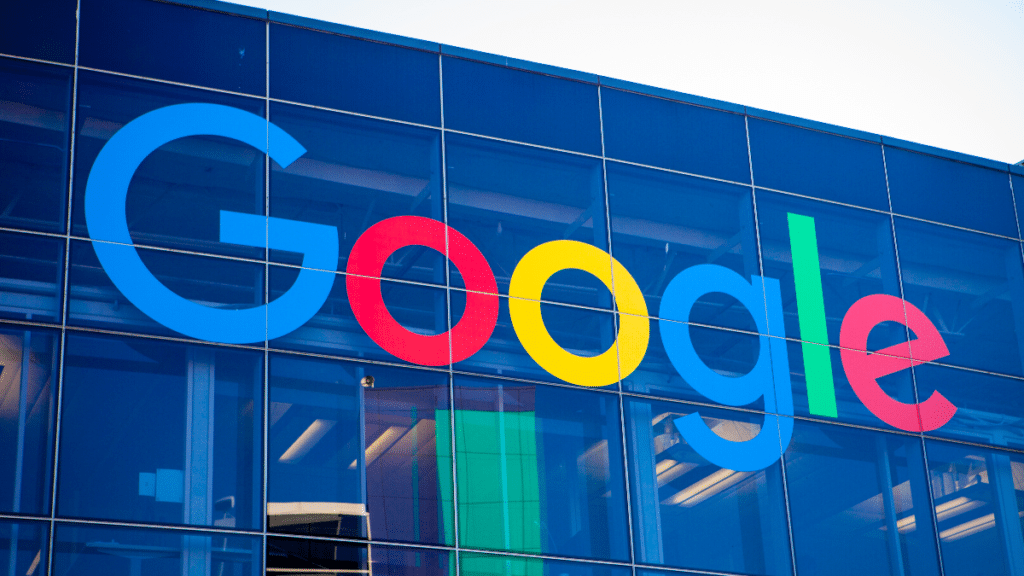The Value of News Content to Google is Way More Than You Think
Courtney Radsch / Aug 8, 2023Dr. Courtney C. Radsch is Director of the Center for Journalism and Liberty and a fellow at the UCLA Institute for Technology, Law & Policy. She serves on the board of Tech Policy Press.

What is the value of news on social media, search, and other platforms that freely aggregate headlines, snippets and even photos so that most people never even feel the need to click through to read a whole story?
This question is at the heart of recent efforts around the world to level the playing field between technology platforms and news organizations in order to make Big Tech firms pay for the news they use. But whereas tech companies like Google and Meta have sought to narrow the discussion to focus on clickthrough rates and the value of the traffic they provide to publishers, this approach disregards the ways that journalism improves the platform itself for all users, even if they don’t click through on a headline.
Now, a new study finds that the value of news is far higher than policymakers or publishers think it is, at least on Google Search, which accounts for the majority of Google’s $280 billion annual revenue.
The study, conducted by FehrAdvice & Partners AG on behalf of the SWISS MEDIA publishers' association with oversight by leading academics, assessed the value of journalistic content on the Google search engine in Switzerland and its impact on user behavior and satisfaction, concluding that the market share of Google searches that use media content results in an estimated revenue of about $440 million per year. It suggests that if Google did not have a dominant monopoly position in web search and faced serious competition, fair compensation for the value that media content provides to Google search would amount to about 40% of total revenue, or approximately $176 million per year in Switzerland alone.
Swiss lawmakers have been exploring whether the country should adopt ancillary copyright or licensing approaches akin to the EU or Australia, but cited a lack of evidence to inform their policymaking, and sought to put a price tag on the value of news before designing any new regulations.
The study, conducted in January and February, 2023, involved an online experiment with 1573 representative respondents from Switzerland.
The authors note that “a majority of people use aggregators like Google as their first point of contact with the information ecosystem to search for relevant information,” and often don’t even click through or beyond the first page because their needs are met, meaning that the very presence of specific on search provides inherent value that click-through rates and referral traffic don’t capture. They hypothesize that if the “balance between content in the ecosystem is disturbed and the users are no longer drawn in by attractive and quality content, they may switch to other platforms that are better adapted to their needs.” This might include using a different search engine or going directly to a news publisher.
Participants in the study were randomly assigned to one of two groups: the "Google WITH journalistic content" group or the "Google WITHOUT journalistic content" group. This approach ensured that any observed differences in behavior or perception could be attributed to the presence or absence of journalistic content, rather than individual differences between participants.
Participants underwent a baseline measurement in which they were asked about their typical information search habits, preferred research topics, and the factors they considered relevant when searching for information. This helped establish a starting point for comparison.
During the experiment, participants were placed in a realistic scenario and asked to search for relevant and current information on a specific topic. The “Google WITH journalistic content” group saw search results that included snippets of online newspapers and other journalistic sources, while the “Google WITHOUT journalistic content” group received search results without any journalistic content.
For years Big Tech platforms like Google and Meta, which owns Facebook and Instagram, have curated journalistic content without licensing it or compensating publishers even as they cornered the digital advertising market, enjoying record profits while the news industry has suffered historic economic woes. Simple lists of headlines and low-quality photos have evolved over the years into substantial summaries with high-quality photos that often preclude the need to read further, much less click through to a news website.
Discussions about whether Big Tech should pay for the news they use, and how much publishers should be compensated, have been mired in debates over the relative value of referral traffic and focused on the individual outlet level. The lack of data about the link between revenue and traffic, and the challenge of obtaining data from the platforms to enable publishers to make meaningful assessments, have hampered publishers as well as policymakers from being able to establish the true value of news on a given platform.
This study, however, sought to step back from assessing the value of a specific outlet-platform relationship to try to understand the value that Google search, which accounts for more than 90 percent of searches , obtains from the news industry. It also negates claims by Google and Meta that news is a relatively insignificant aspect of their platforms.
It emphasizes the need for a balanced information ecosystem, with cooperation between media platforms and content providers to ensure sustainability and enable democratic governance.
Key points of the study include:
1. Importance of a Balanced Information Ecosystem:
As I’ve written about before, a healthy information ecosystem is one that is balanced and ensures the survival of keystone species like public interest news media. The Fehr study hypothesized that if the balance is disrupted, users may switch to platforms better suited to their needs, potentially leading to a decline in the diversity and quality of reporting.
2. Different Types of Searches:
Not all searches are informational, meaning that journalism is probably less important if someone is searching for a product or trying to figure out how to get somewhere. The study accounts for the fact that the internet offers three types of searches -- information, transaction, and navigation – and based on existing usage data estimates that information searches account for just over half, about 55%, of all internet searches.
3. Users' Relationship with Aggregators:
Many people use aggregators like Google as their primary source of information. However, significant portions of users find answers to their queries directly on the platform without clicking further to access the original source. This retention of value within the platform may discourage the production of high-quality journalistic content, according to the authors.
4. Importance of Journalistic Content on Google Search:
The integration of journalistic content in Google search results positively affects user satisfaction and success rates. Users prefer search results that include journalistic content and are willing to pay more for it. The absence of such content may lead users to explore alternative platforms, indicating that journalism creates significant value to Google Search by improving the utility and perception of search, but that Google holds back commercial value from the publishers because it retains most visitors in its own ecosystem.
5. Fair Distribution of Value:
To maintain robust and innovative information ecosystems, a fairer and more balanced distribution of profits between all stakeholders is essential. Implementing ancillary copyright protection laws, as seen in other European countries and the EU Copyright Directive. The authors conclude that ancillary copyright may help achieve this goal. Similarly, legislation such as news media bargaining codes that require good-faith negotiations for platforms to license news content for use in and on their platforms may also help.
6. The math
When the revenue generated by search engine advertising is calculated based on the market share of Google searches that use media content, the estimated revenue is around CHF 385 million per year. The study suggests that if Google did not have a dominant monopoly position in web search and faced serious competition, a fair share of this revenue would be around 40% of the total, or approximately CHF 154 million per year, as compensation for the value that media content provides to Google's search engine.
- - -
This study confirms the crucial role of news content in the Google search engine, as users prioritize quality, completeness, trust, and up-to-dateness when seeking information. The integration of journalistic content increases user satisfaction and success rates, highlighting the value users place on news reporting. For the ecosystem's sustainability, it is essential to distribute the generated value fairly among all participants involved.
As Google and Meta faceoff with governments around the world, they have said they will cut off access to news in Canada rather than comply with that country’s recently passed new Online News Act, and threatened to do the same in California and the broader US if similar efforts pass there. The platforms claim that news comprises a very small portion of content on their platforms and that people aren’t really that interested in news. But this study underscores how this view is myopic and disingenuous.
Future studies in other markets would be helpful and enable local dynamics of specific news markets to be considered in any efforts to improve fair compensation frameworks. About a dozen countries around the world – including the US, Brazil, Canada, India, Indonesia, and South Africa – are considering new regulation to compel Google, Meta and other key platforms to license or pay for content from news outlets.
And, a complementary study should review how valuable news content has been to the development and training of large language models and foundational AI systems that undergird the generative AI revolution in order to put a price tag on what companies should be paying to license journalistic content for training their commercial products.
By understanding the significance users attach to news content on platforms like Google, policymakers can cultivate a balanced ecosystem that enables quality journalism and user satisfaction by improving the distribution of revenue to those who create much of this value.
Authors
